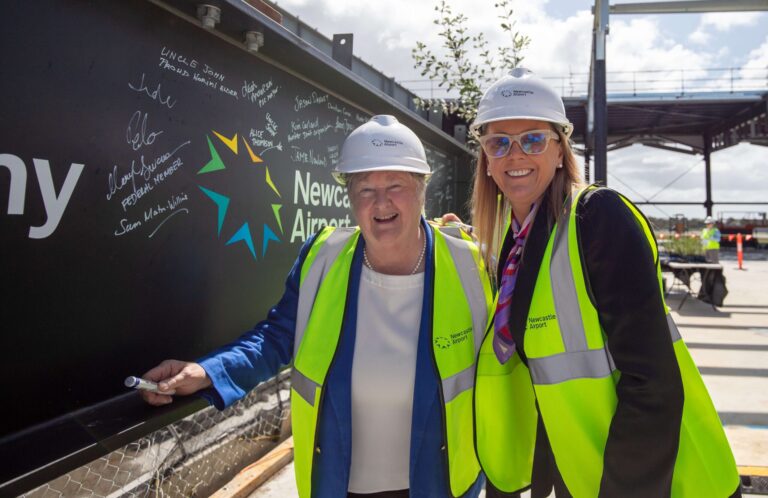The Hunter region stands to benefit significantly from the government’s latest budget, in which the Treasurer flagged an improved fiscal position for the current financial year, before warning of some challenges after that.
The underlying cash balance for the 2023 financial year is forecast to improve by $42 billion compared to the pre-election forecast (PEFO). The government expects that this figure will also improve by $12 billion for the 2024 financial year compared to PEFO, but thereafter the position is less favourable.
Budget deficits appear set to continue through to 2032-33, but from 2024-25 are not expected to exceed 2 percent of GDP. Unsurprisingly therefore, the budget includes certain revenue raising measures.
Still, the government’s commitment of $15 billion to a National Reconstruction Fund is a welcome one. It has the potential to provide significant support to manufacturing in the Hunter region. Meanwhile, $500 million for planning, corridor acquisition and early works for the Sydney to Newcastle High Speed Rail, is a huge gain for the region.
Funding committed to the Newcastle Airport expansion, The Port of Newcastle Hydrogen Hub, higher speed rail between Newcastle and Sydney and the Muswellbrook bypass will help boost growth and provide development opportunities for local business.
The investment in Newcastle’s infrastructure brings forward the potential for the region to become a major logistics hub, the intersection of inland rail connectivity, future diversification of activities at Newcastle Port, airport expansion, and existing road network provides freight access to all states and capital cities while bypassing the bottlenecks in existing capital city hubs.
There is more detail about the election proposals to limit tax deductions for multinational enterprises and increase tax transparency. The Budget also provides additional funding to the ATO for compliance activity on personal tax, business tax and the shadow economy.
We are pleased that the fiscal position has not deterred the government from investing in measures which can support gender equity. The Government will add an additional six weeks of Paid Parental Leave for families, increasing the total leave payable by two weeks per year from 1 July 2024, reaching 26 weeks from 1 July 2026.
Cheaper childcare will also apply through an increase in the Child Care Subsidy rate for all families earning less than $530,000, encouraging workforce participation and supporting gender equality.
Paid parental leave and increased childcare support will also be of benefit by expanding the pool of available labour and improve the educational outcomes of children in the region.
Despite recent scrutiny, there were no changes announced to the legislated Stage 3 Tax Cuts. The tax cuts will abolish the current 37 percent individual tax bracket and lower the existing 32.5 percent bracket, applying a 30 percent rate up to $200,000. These tax cuts are to apply from 1 July 2024 assuming no changes occur. The Government will not proceed with the previously announced measure to allow taxpayers to self-assess the effective life of certain intangible depreciating assets.
In addition, the proposed Housing Accord with the state and territory governments, investors and industry have the potential to drive much-needed improvement in the supply of affordable and social housing.
A new feature of this Budget is the chapter entitled Measuring what matters, which sets out the government’s aspirations for tracking Australia’s development in areas such as educational attainment, health outcomes and reduction in inequality.
Managing the consequences of climate change is a central feature of this fresh look at how the government will evaluate and explain policy. The government has committed to releasing a further statement on this theme in 2023.
While Jobs and Skills has been at the centre of this government’s focus to-date, culminating in the Jobs and Skills Summit in September 2022, this was very much a holding budget for the sector as they await the outcomes of the protracted National Partnership Agreement negotiations.
However, the announcement on Monday of 967 teaching, nursing and engineering places for the University of Newcastle is a welcome step toward increasing skills in the region.
From personal tax to banking, superannuation, infrastructure, health, defence, climate change, and more, the Federal Budget has implications for every corner of the Australian economy and impacts our status on the global stage.
To read KPMG’s analysis of the key measures and financial announcements from the October Federal Budget and what they mean for business and the economy visit Federal Budget October 2022 | Budget analysis – KPMG Australia (home.kpmg)






